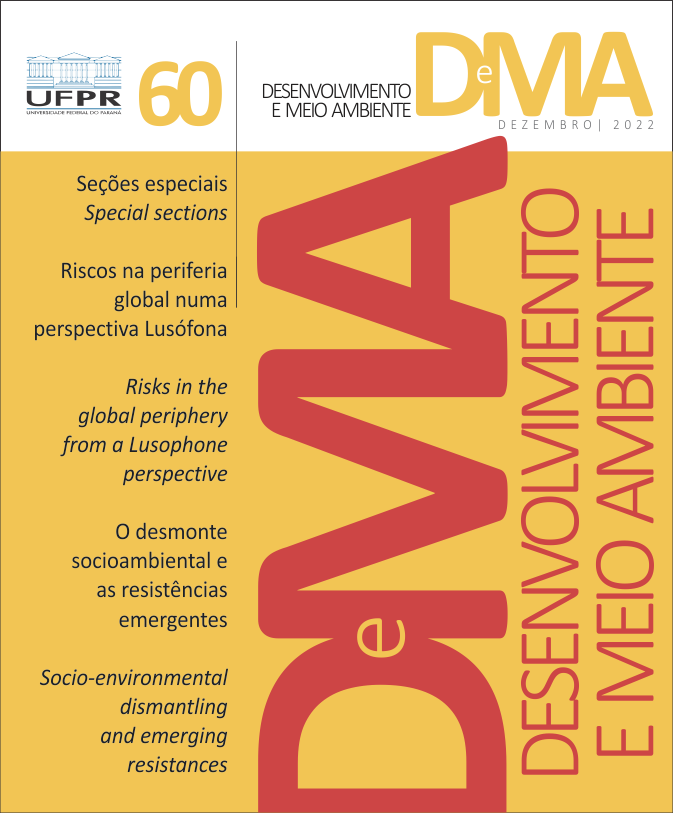Indigenous people of Paraná and Covid-19: 2020 overview
DOI:
https://doi.org/10.5380/dma.v60i0.79999Keywords:
Paraná's indigenous history, indigenous health, Covid-19, social marginalization, socio-environmental adaptationAbstract
The coronavirus Covid-19 pandemic has caused an unprecedented global crisis. From the economic scenario until the Indigenous people’s lifestyle, including the typically capitalist society, has been significantly reshaped. As invisible characters in History, the Indigenous people of Paraná have been socially isolated and may be under non-measurable inequalities, misleading statistics, and limited support by the health institutions. This study aimed to analyze the vulnerabilities and resilience responses of the Indigenous people of Paraná to the Covid-19 pandemic and discuss the underreporting and inconsistency of data on confirmed cases and deaths by Covid-19 based on state and national health institutions. This research consists of descriptive and quali-quantitative analysis conducted online that lasted ten months in which: (i) data from two governmental health institutions responsible for monitoring Covid-19 among the Indigenous people of Paraná and two Indigenous were collected and compared; and (ii) perceptions from the Indigenous people of Paraná through interviews and responses to the considered problem at indigenous organizations. As non-conclusive results, it is mentioned: (a) the confirmed cases and deaths by Covid-19 among Indigenous people of Paraná were discrepant according to the considered health institutions; (b) the Indigenous people of Paraná have probably got limited access to health services, including the lack of Covid-19 testing that may be influencing on the underreporting data, and (c) the transparency of methods of data collection and publishing has been inadequate among the studied health institutions.
Downloads
Published
How to Cite
Issue
Section
License
Copyright on works published in this journal rests with the author, with first publication rights for the journal. The content of published works is the sole responsibility of the authors. DMA is an open access journal and has adopted the Creative Commons Attribution 4.0 Not Adapted (CC-BY) license since January 2023. Therefore, when published by this journal, articles are free to share (copy and redistribute the material in any medium or format for any purpose, even commercial) and adapt (remix, transform, and create from the material for any purpose, even commercial). You must give appropriate credit, provide a link to the license and indicate if changes have been made.
The contents published by DMA from v. 53, 2020 to v. 60, 2022 are protected by the Creative Commons Attribution-NonCommercial-NoDerivatives 4.0 International license.
DMA has been an open access journal since its creation, however, from v.1 of 2000 to v. 52 of 2019, the journal did not adopt a Creative Commons license and therefore the type of license is not indicated on the first page of the articles.




